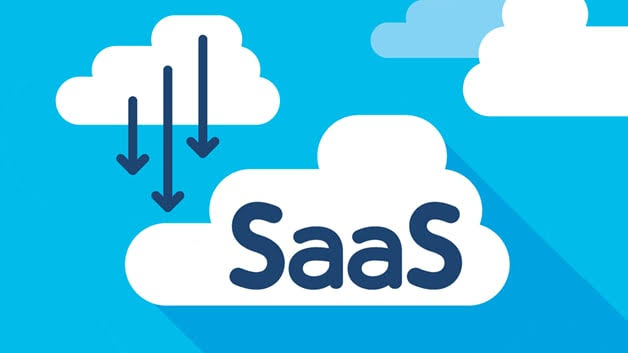In the ever-evolving realm of technology, Software as a Service, or SaaS, has quickly become a transformative force. Today’s dynamic business landscape demands agility, scalability, and cost-effectiveness, and that’s where SaaS product development steps in.
Understanding SaaS Product Development
SaaS product development is the process of designing, creating, and maintaining software that is delivered to users over the Internet. With SaaS, traditional software installation, maintenance, and constant upgrading become things of the past. Users can access the services using any device with an internet connection and a web browser, enhancing accessibility and convenience.
The charm of SaaS products lies in their flexibility, scalability, and the ability to reduce costs and risks associated with software ownership. They can be used straight out of the box, offering the immediate utility that modern businesses desire.
Importance of SaaS Products for Business Growth
SaaS products have revolutionized how businesses operate, providing significant opportunities for growth and expansion. Businesses can reduce upfront costs associated with purchasing and maintaining software, making it a cost-effective solution for startups and established businesses alike.
Scalability is another strength of SaaS products. As your business grows, SaaS applications can scale to accommodate increased data volume and user count. This agility is vital for businesses in an increasingly digital age.
Let’s look at Slack, for instance. This SaaS product started as a small-scale solution but has grown into a major communication tool for businesses worldwide. Slack’s success story underscores how SaaS products, when utilized effectively, can significantly contribute to business growth.
Steps to Leverage SaaS Product Development for Business Growth
1. Identification of Business Needs
The first step towards leveraging SaaS product development is understanding your business needs. What problems are you trying to solve? What value will the SaaS product add to your business or your customers? Understanding these will guide the development process.
2. Selecting the Right SaaS Development Team
A skilled team experienced in SaaS product development and software product engineering services can make all the difference. They will navigate the complexities of development, ensuring the product aligns with your business objectives and user needs.
3. Planning and Roadmapping
A well-defined roadmap guides the development process, ensuring every decision aligns with your business goals. During this phase, define the core functionalities, create a development timeline, and identify key performance indicators (KPIs).
4. Product Design and User Experience
The user experience should be at the core of your SaaS product. Your design should be intuitive, engaging, and user-friendly. Remember, an outstanding user experience can set your SaaS product apart in the crowded market.
5. Development and Testing
Next comes the development phase. This is where your SaaS product starts taking shape. Regular testing should be done to ensure the product functions as intended.
6. Deployment and Market Release
After thorough testing, it’s time to deploy your product. Take advantage of cloud platforms for easy deployment and scaling. Remember, after the release, the work isn’t over – it’s just beginning.
7. User Support and Continuous Improvement
Provide excellent customer support to resolve any issues that users may encounter. Additionally, continuously seek feedback and improve the product based on user insights.
Best Practices for SaaS Product Development
To successfully leverage SaaS product development, some best practices should be followed:
● Focus on user experience: The success of your SaaS product largely depends on how easily users can navigate and use your product.
● Use agile methodologies: Agile approaches allow for flexibility and iterations, crucial in today’s rapidly changing technology landscape.
● Prioritize security: Given that data is hosted online, it’s vital to ensure that the product is secure and reliable.
Pitfalls to Avoid in SaaS Product Development
While SaaS product development offers immense potential, some pitfalls should be avoided:
● Overcomplicating the design: Simplicity is the ultimate sophistication. Don’t burden your product with unnecessary features that confuse the users.
● Neglecting customer support: Excellent customer support is crucial for the success of your SaaS product. Make it a priority, not an afterthought.
● Ignoring feedback: User feedback is valuable for continuous improvement. Ignoring it can lead to dissatisfaction and decreased user retention.
Case Study: Successful Implementation of SaaS Product Development
Salesforce, a leading CRM SaaS product, is an excellent example of successful SaaS product development. They recognized the need for a cost-effective, scalable CRM solution and developed a product that effectively caters to businesses of all sizes. Today, Salesforce is a dominant player in the CRM space, showcasing the power of SaaS product development for business growth.
Final Words
SaaS product development, when leveraged effectively, can catalyze business growth. It provides scalability, cost-efficiency, and flexibility, setting your business up for success in the digital age. By understanding the intricacies of SaaS product development, selecting the right development team, focusing on user experience, and adhering to best practices, your business can harness the full potential of SaaS. Now, it’s time to put these insights into action and start your journey towards successful SaaS product development.
Remember, it’s not just about developing a product; it’s about creating value for your customers and growth opportunities for your business. So, are you ready to level up with SaaS product development?

